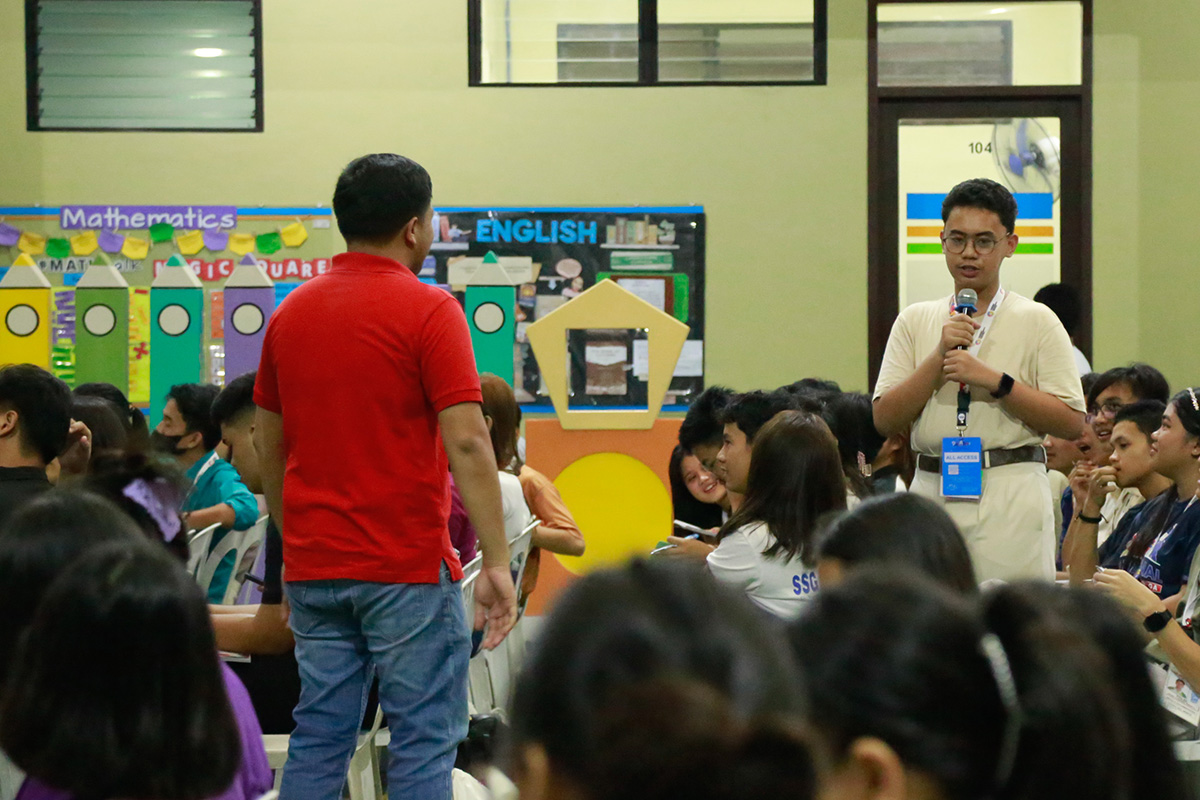“Our voices deserve to be heard, for we are not just the future—we are the present, shaping the digital world today.”
These words from Lei, a child rights advocate and president of the Division Federation of Supreme Secondary Learners Government in Tagum City, embody the advocacy he championed in his lifetime. Though he is no longer with us, his legacy of amplifying children’s voices in shaping a safer digital space lives on.
As an active internet user, Lei understood both the opportunities and risks that came with being online. However, he also saw a gap: children like him were rarely included in conversations that shaped digital policies and protections.

Lei participates in Save the Children’s session during the 2023 Learners' Convergence PH in Marikina City. Jane Paola Sison/ Save the Children
His advocacy began in 2023 when his school partnered with Save the Children Philippines to address Online Sexual Abuse or Exploitation of Children (OSAEC) and Child Sexual Abuse or Exploitation Materials (CSAEM). Through this experience, he realized that while adults offer advice on online safety, their guidance does not always align with the realities of children’s digital lives.
“Adults should also recognize that connecting with new people is part of the online experience. What we need is for them to guide us in ways that address our actual digital needs, not just make assumptions and generalize with ‘don’t talk to strangers’ advice,” said Lei.
He emphasized that children are not just passive internet users—they actively make decisions about who they engage with and how. However, he also believed that safer digital spaces required more than just individual caution; children needed structural support from adults and tech companies.
In 2024, Lei participated in Save the Children's global study, “Protecting Children from Online Grooming”. The research collected insights and recommendations from 604 children across seven countries, offering key suggestions for governments, platforms, NGOs, and other stakeholders to improve online safety and better support children’s digital engagement.
Specifically, he advocated for tech companies to implement safety features, such as age restrictions on who can message children and alerts when someone is flagged by other young users.
“As an internet user, I’ve known how important it is for children like me to feel safe, protected and heard online as it can be overwhelming or risky. Children nowadays doesn’t have a say in how it operates. This is why it’s so important that young people like us are part of the conversation,” said Lei.
Before his passing, Lei continued to facilitate online safety sessions alongside Save the Children, working with children in Tagum City. He remained committed to passing on what he learned, ensuring that more children like him could voice out solutions that were realistic to their experiences.
Lei’s efforts remind us that young people have the power to influence policies and that their insights are crucial in creating safe spaces for all children. As we continue the fight for a more inclusive digital world, we honor Lei’s legacy and the impact he made in his short but meaningful time.
Editor's Note: We are deeply saddened by Lei’s passing. Our thoughts are with his family, friends, and the community he inspired.